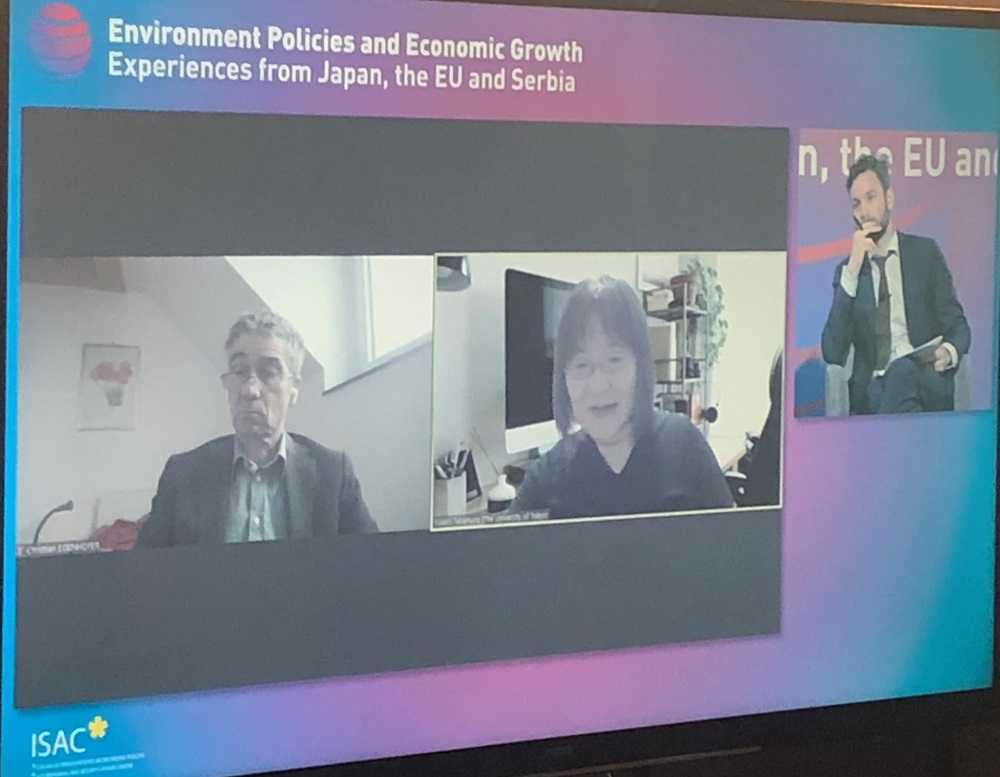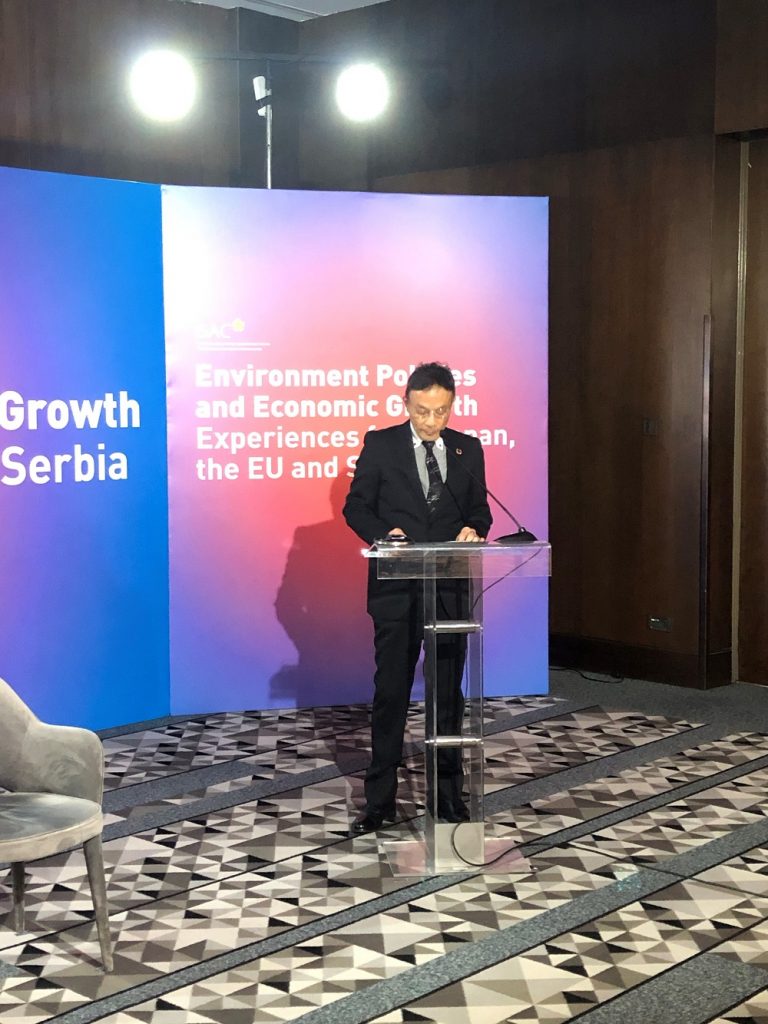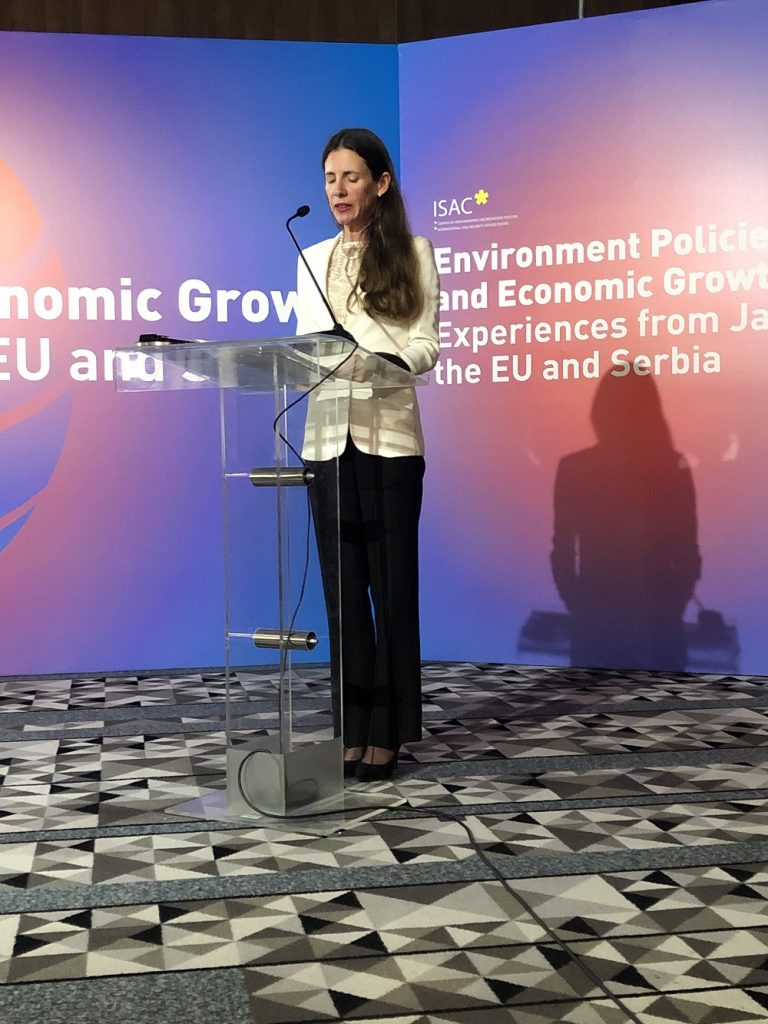Economic Growth with Environmental Protection
How has Japan reconciled economic development with environmental concerns? What should Serbia do on the path of the greener development model? What does the EU Green Deal mean for the EU and the region?

Presenting a European Green Deal the EU set its goal of making it’s economy sustainable by ending greenhouse gas emissions by 2050 and becoming a climate neutral continent. Part of that package is the green agenda for the Western Balkans, which has the goal of transferring the green agreement to the region and also to harmonize the countries of this region with the EU environmental policy in order to encourage nature preservation.
This was one of the topics of the two-day international conference „Environment Policies and Economic Growth: Experiences from Japan, the EU and Serbia” with the purpose to raise awareness about the environment and explore the different experiences in trying to move towards a sustainable and clean future for Serbia. The conference was organized by the International and Security Affairs Centre – ISAC, with the support of the Japanese Embassy in Belgrade.

“The most challenging crisis of our time is man-made global warming. If we continue to behave the way we do at the moment, large parts of our planet will be uninhabitable as soon as 2040. But the good news is that it is in our hands to turn around the trend, save the ecosystems we depend on and by doing so to advance to a decarbonized economy of the future. Serbia stands at the beginning of this endeavor but has huge opportunities by embracing the Green Agenda for the Balkans. Implemented smartly, it can be Serbia’s chance to modernize its economy, create thousands of jobs and move forward in the EU accession process” said Simon Ilse, Office Director at Heinrich Böll Foundation in Belgrade, one of the participants at the conference.

Environmental degradation and climate change are an existential threat to the world knowing no borders and we can deal with this issue only with joint forces. In that regard, economic growth has to go alongside environmental protection. Serbia is no exception and learning from the experience and best practices of developed countries in this field is of immense importance, which is a common position of the experts from Japan, the EU and Serbia. Mitsuaki Harada, Managing Director at the company Beo Čista Energija (ITOCHU), agrees with this and stresses: „For solving the most important environmental and social challenges, it is necessary to rely on experiences that countries like japan have, and which can serve as a guide and orientation model for Serbia as well as for the region“.
Bearing in mind the challenges of large amounts of air and water pollution coming from various areas – old dirty industries, old coal producing power plants, increase of traffic and congestions, lack of environmental enforcement and overall lack of environmental awareness, the experience of Japan as one of the world’s strongest economies is extremely relevant, especially when it comes to dealing with dirty technologies.

In Serbia’s EU integration process, the environment is one of the most important issues and one of the most complex and challenging chapters. The experience of Japan can be of great support for Serbia’s EU accession, especially when it comes to a sustainable economy, which would, at the same time, be beneficial to the Serbia-Japan relations as well.